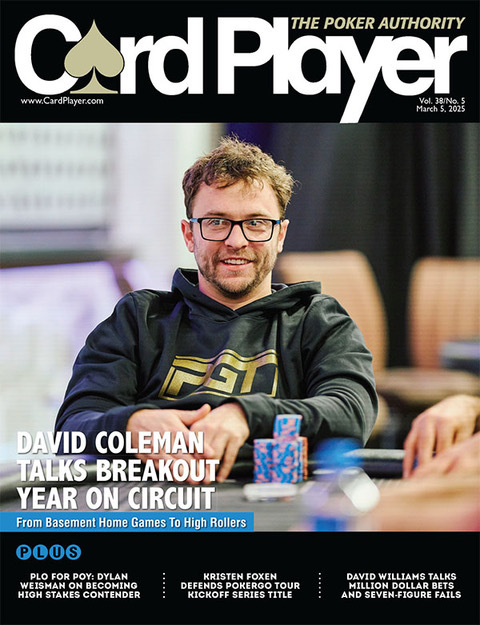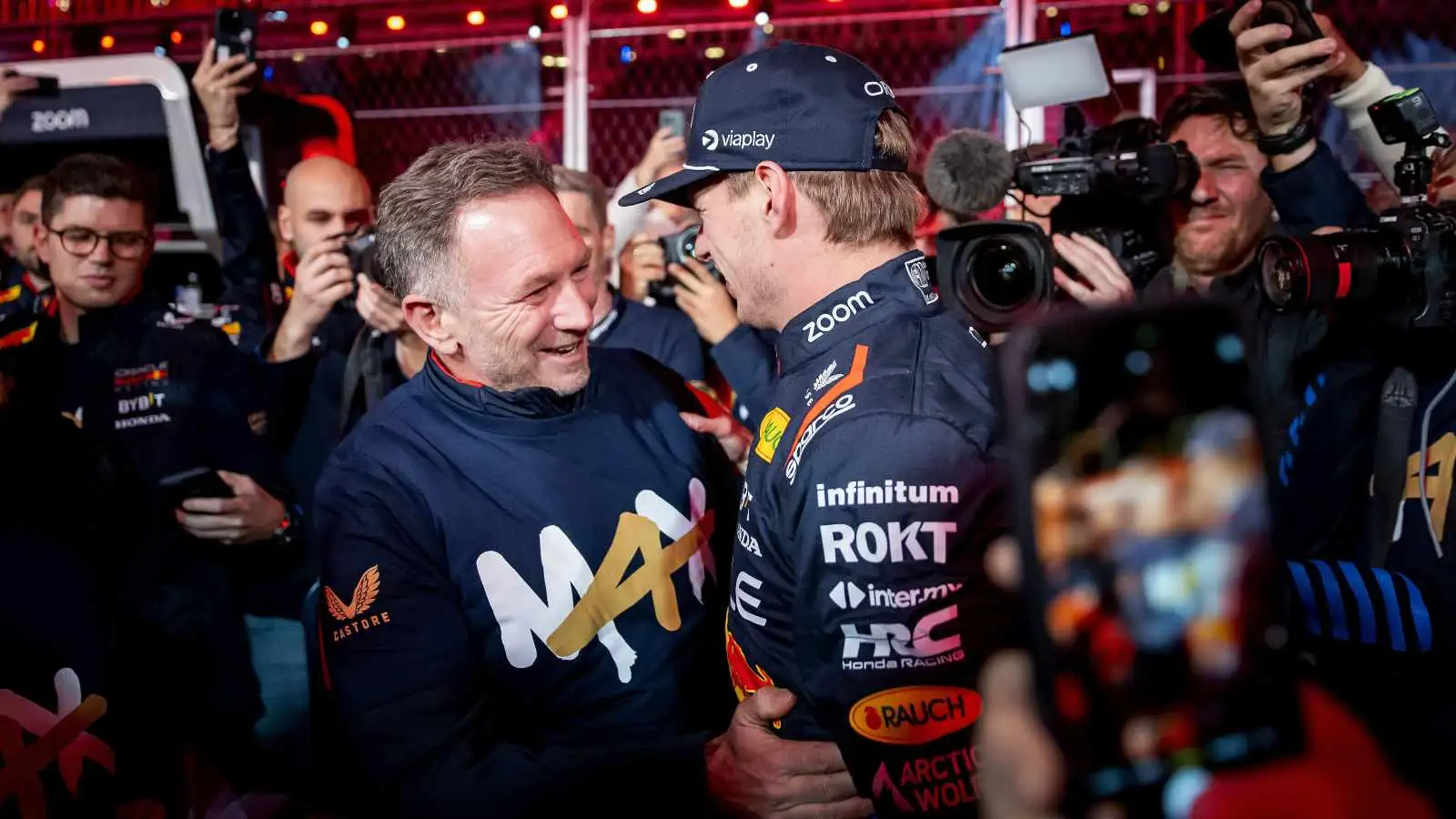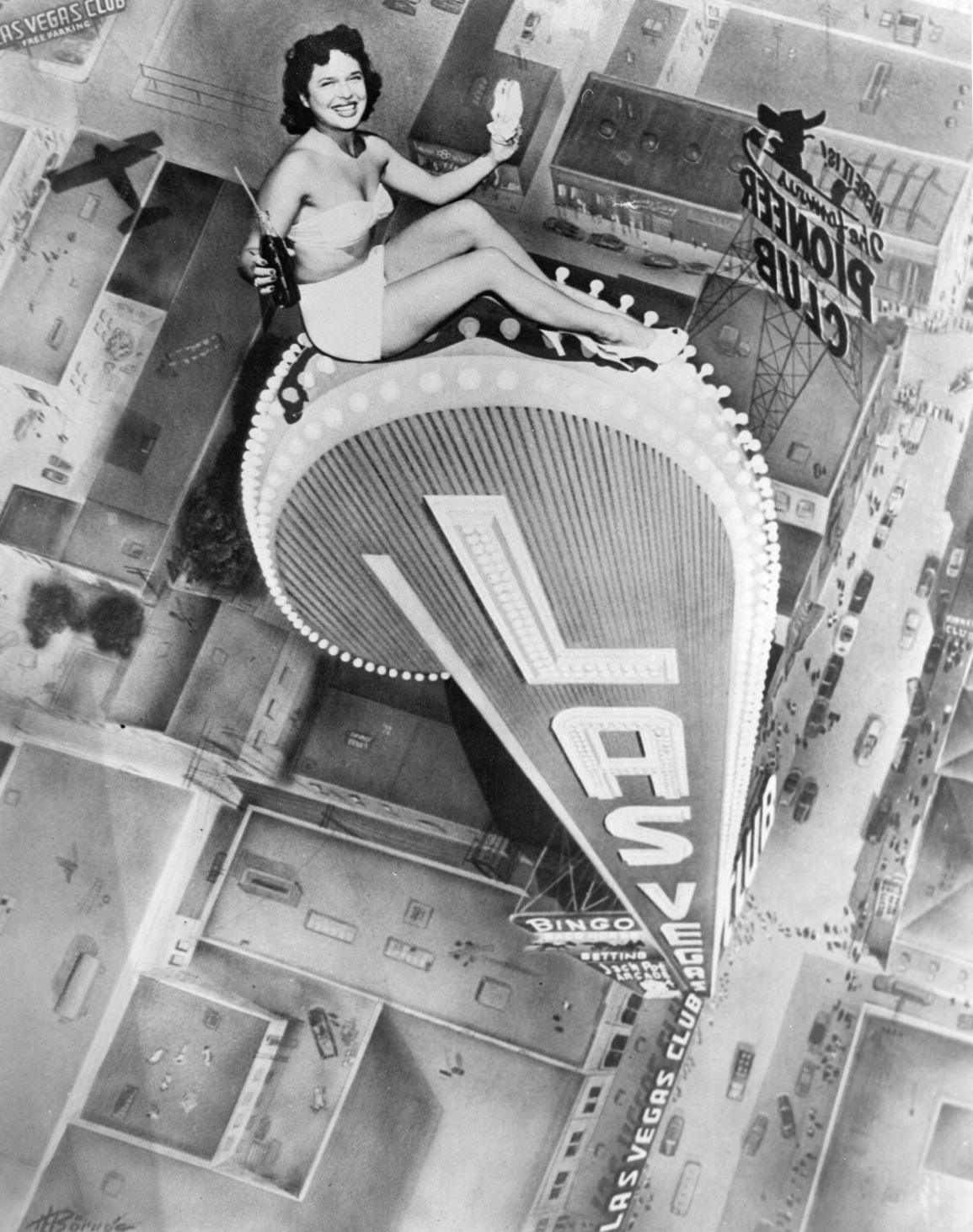.jpeg) Fresh out of Rutgers University with a degree in finance and minor in economics, David Coleman didn’t exactly land the job he’d hoped for. Pushing papers as a pension plan administrator didn’t quite make use of his analytical mind and penchant for numbers. The goal was to land a gig at a big bank or hedge fund, but that wasn’t in the cards.
Fresh out of Rutgers University with a degree in finance and minor in economics, David Coleman didn’t exactly land the job he’d hoped for. Pushing papers as a pension plan administrator didn’t quite make use of his analytical mind and penchant for numbers. The goal was to land a gig at a big bank or hedge fund, but that wasn’t in the cards.
“It was very boring and I didn’t feel very challenged,” he says. “I felt like my role didn’t utilize my math skills. I felt like it was very ‘just do stuff by the book,’ which is not necessarily my strength. Some of my biggest strengths are analyzing numbers and figuring out how things work. I wasn’t that high up on the totem pole at that point. I was just doing grunt work.”
After seven weeks, he was already looking for something else. After work, his routine usually involved going home and playing online poker – something he enjoyed and had a knack for. Could clicking a mouse and battling it out online pay the bills?
Taking a leap of faith, Coleman ditched the day job and gave full-time poker a shot. He hasn’t looked back.
The 31-year-old originally from Livingston, New Jersey, went on a massive run in 2024, concluding with a runner-up in the Card Player Player of the Year race presented by Global Poker. It was an epic year that included six titles, 25 final table appearances, and nearly $5 million in total cashes.
Keep in mind that before 2024, Coleman had never been the last man standing in a major live tournament. That all changed with a breakout January anyone would envy, starting by taking down the $1,600 Card Player Poker Tour main event at the Venetian for $115,989.
He then went on a tear in the PokerGO Tour Kickoff Series, cashing in four consecutive events with two wins, a runner-up, and a fifth-place for a total of nearly $300,000. He would notch another win in the $15,000 PokerGO Cup event for $302,400 to close out the month.
“It was pretty surreal,” he says. “Every time I made a deep run in a tournament, I’d be super grateful and appreciative. Then weeks later, I’d be making a run on something else. It was like a never-ending dream. I felt like I couldn’t lose an all-in all year.“
 The big finishes just kept coming. In February, he grabbed a runner-up in a $50,000 Triton Poker Jeju event for $642,900. A U.S Poker Open win followed in April for $202,300 with several other final table appearances in the spring. He added fourth and fifth-place finishes at the World Series of Poker and then struck gold in the World Poker Tour Alpha8 high rollers at Wynn Las Vegas, finishing sixth in the first of three events for $97,000 and winning the final event for $730,300.
The big finishes just kept coming. In February, he grabbed a runner-up in a $50,000 Triton Poker Jeju event for $642,900. A U.S Poker Open win followed in April for $202,300 with several other final table appearances in the spring. He added fourth and fifth-place finishes at the World Series of Poker and then struck gold in the World Poker Tour Alpha8 high rollers at Wynn Las Vegas, finishing sixth in the first of three events for $97,000 and winning the final event for $730,300.
In August, Coleman grabbed another runner-up in a $10,000 Seminole Hard Rock Poker Open event for $198,900 and a fifth-place finish in the European Poker Tour Barcelona main event for $442,835. There were four cashes in the Poker Masters, a fourth-place finish in a North American Poker Tour Las Vegas side event for $132,450, and he closed out the year at WSOP Paradise with a sixth place in the $100,000 Triton main event for a career best $890,000.
“I’ve come a long way as a player, especially in the live arena where I didn’t have a ton of experience before 2024. I was more of an online guy. When I moved to Vegas, I transitioned to playing a really full schedule, and 2024 was the first year I did that. I was very fortunate to have things go my way in a big way.”
As a result of his breakout year, Coleman finished second in the Card Player Player of the Year race, less than 500 points behind two-time winner Adrian Mateos.

Coleman spoke with Card Player about his 12-month heater, the journey from New Jersey basement games to high rollers all over the world, and where he’s headed next with his career.
Hitting The Virtual Tables
Growing up with three brothers, competition was a regular part of life for Coleman. Living on a dead-end street meant basketball or hockey games could break out at any moment. He credits those early sibling battles with giving him his edge at the tables.
“I have that chip on my shoulder, a little bit of my toughness,” he says. “I definitely attribute a lot of my success to my upbringing for sure.”
Like many professional players, Coleman grew up playing cards. He remembers small-stakes games in the basement with his brother and his friend as young as age 12. Coleman’s own friends soon joined in and those basement sessions turned into a twice-weekly home game by the time they reached high school. These days, those same high school poker friends still follow his action and blow up his phone after a win.
After moving on to Rutgers, Coleman’s poker scene was reduced to about once a week during his freshman and sophomore years before the game died out as he finished his degree. Then the planned administration job fizzled and playing each night online became his routine.
“Online poker was going super well all the time. I was really enjoying it, and I saw consistent results,” he says. “So, I decided to give it a shot and haven’t had a real job since.”
 The ramped-up online efforts began with cash games in 2015, playing from six to eight tables of $1-$2 and $2-$5 no-limit hold’em to build his bankroll. By 2017, he got bitten by the tournament bug.
The ramped-up online efforts began with cash games in 2015, playing from six to eight tables of $1-$2 and $2-$5 no-limit hold’em to build his bankroll. By 2017, he got bitten by the tournament bug.
“Cash games kind of got boring to me,” he says. “Tournaments were a really good opportunity. Online poker in New Jersey was just incredible. It was perfect timing to really build a roll in a small market with small player fields. I got to know everybody pretty well and how they played, and the variance was quite low. It was a very stress-free way to start my career.”
Many parents may not be on board for their son deciding to play poker rather than making use of a freshly-minted finance degree, but Coleman’s parents took a different approach.
“They were more supportive than a lot of other parents,” he says. “They saw how well I was doing and how much I enjoyed it. They didn’t fully get it at first, but as I got older, they did. They still don’t fully get it – no parent fully does. I say it was a big moment in my career when my mom stopped calling poker ‘playing’ and started calling it ‘working.’ That was kind of the moment where things clicked, and I started to really feel like I was where I belong.”
Transitioning To The Live Game
At the time, Coleman seldom played live poker, just mixing in occasional events in Las Vegas and at the Borgata in Atlantic City and Parx Casino in Philadelphia a few times a year. Even in those limited forays into the live game, Coleman began finding success.
He began playing more PokerGO Tour events, quickly finding nice results in the 2021 PokerGO Cup, including a runner-up finish for $455,000 and a third-place score for $144,000. He also found a third in a WSOP Online event for $102,720 and a runner-up at the 2021 Super High Roller Bowl Cyprus $50,000 high roller for $364,000.
“My results in the high stakes [tournaments] weren’t amazing at first. I just started to run much better, and definitely started to play better too as things started going my way,” he says.
All of his big finishes in high rollers culminated with a victory in the $25,000 buy-in Alpha 8 event at Wynn, which paid out $730,300.
“I won six tournaments this year, but that was probably the most memorable one,” he says of the Alpha8. “That was a really great tournament, and I got to take home this insane trophy. It was incredible to win that, and it felt like a big weight off my shoulders because I’d only won $5,000 and $10,000 events prior to that, so a $25,000 win was an extra treat against some really good players.”
 What does Coleman see as some of the main differences between playing at mid-level stakes and high roller events?
What does Coleman see as some of the main differences between playing at mid-level stakes and high roller events?
“Obviously, they’re just much tougher fields with much better players,” he says. “One of the things that has contributed to my success recently is just that I’m very adaptive to learning through just watching other people play. Not only have I built a community of poker players that I talk poker with and learn from, but just from watching these guys play these high rollers, I’ve picked up a lot and that’s helped me tremendously.”
Looking Ahead
Away from the tables, Coleman enjoys staying active, watching sports, and traveling with his girlfriend. With some big bucks coming his way over the last couple years, Coleman is also now putting that finance degree to good use. He owns a couple properties and invests in the stock market and some cryptocurrency.
While he talks poker some with other players, including high roller standouts Brock Wilson, Chris Brewer, and Justin Saliba, perhaps its befitting a longtime online poker player accustomed to going it alone that Coleman has historically been more comfortable working on his game by himself.
“Honestly, throughout my career, I’ve been somewhat of a lone wolf as far as studying goes, much more than others,” he says. “I definitely use different training websites and other content out there to help me, but I think compared to other people, I don’t rely on study groups as much. I like working alone, but I’m learning as I get older that it’s good to work in a study group to delegate and split the workload up, and then share the work you each individually put in. That makes things much more efficient. That kind of hasn’t been my M.O. until more recently since I moved to Vegas and built more of a network.”
Despite some close calls, Coleman has yet to capture a WSOP bracelet and most of his big scores have come away from the series. But chasing trophies and tournament titles isn’t necessarily foremost on his mind.
“It’s definitely on my bucket list,” he says of winning a bracelet. “It’s something I want to get accomplished as soon as possible. It’s much more doable when I play high stakes with much smaller fields, and seems like a much more accomplishable goal than when I played mid-stakes and had to deal with 2,000 players every tournament. But to be 100% frank, I’m not as much of an accolade chaser as some other people. I’m more just chasing EV and happiness, more so than trophies and bracelets. But I’m not going to say I don’t want one.”
So what’s ahead in the coming year and what goals does he have for the future?
 “I’m going to play a somewhat similar schedule that I did last year. The key difference will probably be playing a little bit less overall, not forcing myself to play if I don’t want to. I love to play, but sometimes I feel a little burnt out from playing so much. I will try to find more days off when possible, but I just find it challenging at times because the schedule is so good. But I will try to be better at that and just have more relaxation in the middle of big series and enjoy time with my girlfriend.
“I’m going to play a somewhat similar schedule that I did last year. The key difference will probably be playing a little bit less overall, not forcing myself to play if I don’t want to. I love to play, but sometimes I feel a little burnt out from playing so much. I will try to find more days off when possible, but I just find it challenging at times because the schedule is so good. But I will try to be better at that and just have more relaxation in the middle of big series and enjoy time with my girlfriend.
“I’ll also try to make more of a vacation out of these trips. I’m going to go to Jeju (South Korea) in February, and then hopefully stop in Japan after just for strictly vacation. No poker involved, just purely vacation.”



